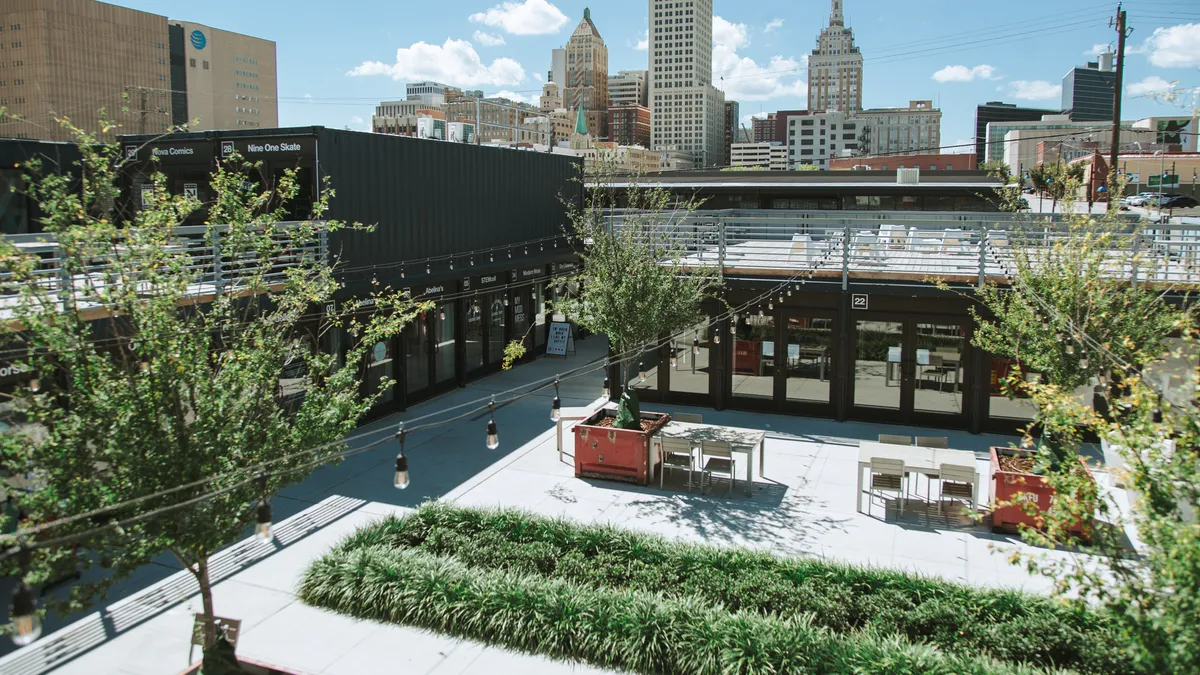UPDATED, Feb. 23, 2021: Tulsa Remote has unveiled a new homeownership program that will provide select recipients with $10,000 upfront to put toward buying a home, a purchase that is often unattainable for the average resident in many U.S. cities.
The homeownership program aims to support a more permanent relocation to Tulsa, where the median home price is $157,000. While the Tulsa Remote program traditionally offers $10,000 in cash installments throughout the first year, this program will allow accepted individuals to received the $10,000 in a lump sump to assist with a down payment.
To date, over 130 Tulsa Remote members (about one-third) have bought a home in Tulsa.
"This new program makes home ownership more attainable for many program applicants,” said Sofia Noshay with Tulsa Remote. "With greater flexibility in how to apply the $10,000, it not only gives members the opportunity to reach long-term financial goals but also establishes them in our community through home ownership and immediate connection with our network."
Dive Brief:
- Tulsa Remote, a program that provides $10,000 grants to remote workers who relocate to Tulsa, OK, has seen a 36% uptick in applications since the onset of the coronavirus pandemic (COVID-19) in March.
- Nearly 600 of those applications have come in from the Bay Area, which is now the program's biggest market. Several San Franciscans — many of whom work for tech giants including Apple, Amazon and Google — have moved forward with the relocation to Tulsa.
- The program has brought in three times as many participants so far this year as it did in all of 2019, said Ben Stewart, interim executive director of Tulsa Remote. Despite planning for a cohort of 250 members this year, the program is on track to bring in nearly 500 members by the end of 2020, Stewart said.
Dive Insight:
The COVID-19 pandemic flipped the U.S. labor force to be the driver of a working-from-home economy, with 42% of Americans working remotely full-time by June, said Stanford University economics professor Nicholas Bloom in a policy report. That number dropped to 35% by August, but still represents an enormous shift in traditional working — pre-COVID, only 2% of workers were full-time remote employees, Bloom found.
A number of leading U.S. corporations including Microsoft, Twitter and Google instilled temporary or permanent work-from-home policies to support this shift, with hundreds of companies nationwide following suit to maintain productivity while keeping workers safe. With those remote work policies in place, many city residents in coastal hubs such as New York and San Francisco are ditching their high-cost cities for locations more affordable.
"The need for space without the premium of living close to the center of the city became a priority," Zillow Senior Economist Cheryl Young said in a recent interview. Zillow and Yelp last week released a "Cityness Index" of the 10 most affordable U.S. suburbs that still "feel like big cities," to support this relocation trend.
The Tulsa Remote program began in 2018 to embrace the transforming workforce illustrated by those 2% of pre-COVID remote workers. While Tulsa officials could of course not foresee the looming 2020 pandemic, the earlier establishment of the program positioned the city as a top spot for workers to consider when planning for relocation. Tulsa Remote's web traffic saw a 5X increase at the onset of COVID-19, Stewart said, resulting in an average of 1,000 program applications per week.
While Tulsa's affordability is a main attractant of many program applicants — the city's housing expenses are 35% lower than the national average, and 80% lower than San Francisco's average — Stewart also emphasized the program's focus on community integration for participants. Tulsa Remote offers programming and events to foster community relationships and connections, as well as free access to co-working space and general guidance for navigating the city.
A number of cities have followed Tulsa's lead this year in attracting the remote workforce. Savannah, GA's Economic Development Authority announced in June a $2,000 workforce incentive program for tech workers, while the GO Topeka economic development group in Kansas launched in September the Choose Topeka Relocation Initiative to offer up to $10,000 for relocation to the Topeka area.
To be successful, the biggest thing for these "undiscovered" cities to do is "tell their story digitally," Stewart said. He said the Tulsa Remote program has created "virtual visits" for interested applicants to experience "what 36 hours in Tulsa may be like." That community integration element is crucial, even when done virtually, he said.












